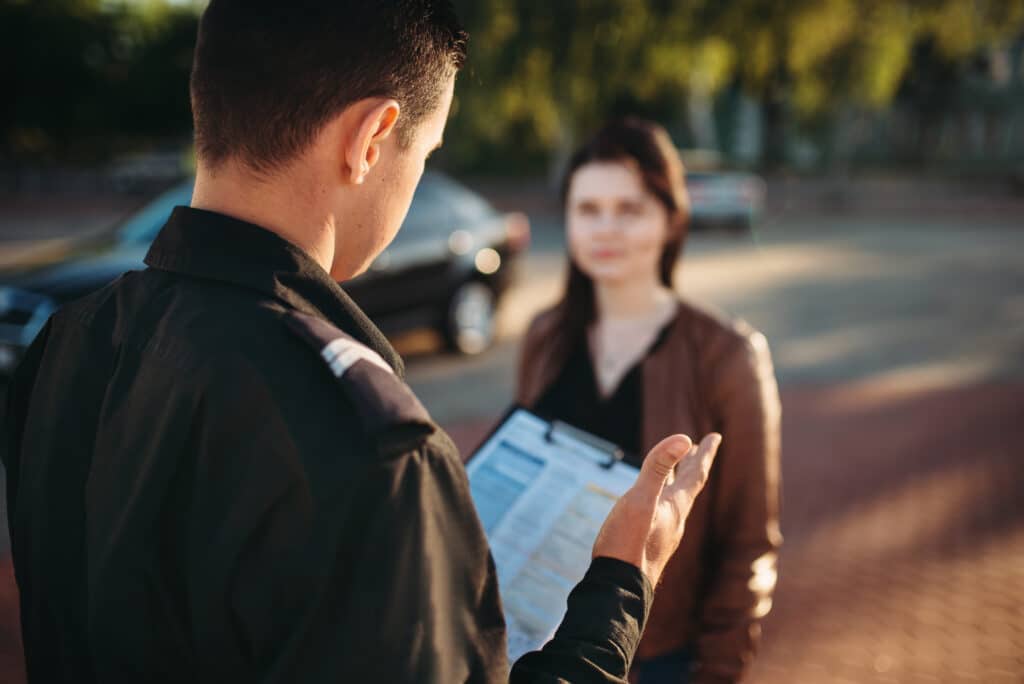Houston Police Join Cite & Release Program

In mid-September, the Houston Police Department announced the implementation of a cite and release program for minor offenses. Under their current policy, these offenses would require officers to take offenders to Harris County Jail.
Houston City Council’s Public Safety and Homeland Security Committee detailed the program in a presentation on September 17. In 2007, the Texas Legislature established this policy as an option for law enforcement agencies throughout the state. Before this presentation, the Harris County Sheriff’s Office adopted the policy.
On Monday, September 28, 2020, Houston Mayor Sylvester Turner signed an executive order to institute the policy.
What Is a Cite and Release Program?
With a cite and release policy, officers have the option to write tickets for minor criminal offenses. The policy enacted by the Mayor limits eligible offenses to some class A or B misdemeanors that meet certain criteria.
Examples of eligible offenses include the following:
- Driving without a license
- Trespassing
- Graffiti below $2500
- Theft below $750
With the program enacted, HPD’s policy will mirror the protocols of Harris County. However, it is important to note that this policy is only in effect in Harris County. If you are in Montgomery County or Fort Bend County, this program is not in effect.
Policies in Texas
Cite and release policies are not new in Texas. However, with criminal justice reform gaining support across the country, the policy is gaining traction. In February 2020, Harris County Sheriff Ed Gonzalez explained the importance of the program.
“We have a growing jail population here. We house close to [9,000] every month…we’ve had to outsource because we reached capacity and we don’t want to do that. We want to make sure there’s enough bed space for more violent criminals.”
Per Sheriff Gonzalez, San Antonio and other cities across Texas already have similar programs in place. As the Mayor signed the executive order, Gonzalez noted that his department has written about 60 tickets since implementing the program.
“I went to several of the court hearings personally, and everyone showed up to court.”
Who Qualifies for Cite and Release?
According to the Texas Code of Criminal Procedures (Article 14.06), there are certain qualifying offenses:
- Drug possession under 4 ounces
- Criminal mischief under $750 in damages
- Theft under $750
- Graffiti under $2500 in damages
- Driving with an invalid license (so long as you are not the at-fault driver in a crash)
- Being caught with something you shouldn’t have in a correctional facility
Someone cannot qualify when they are under 17 years of age, have outstanding warrants, or are currently on parole. Moreover, police officers will decline citations if the person poses a risk to public safety.
Another important note is that officers cannot release the person when they demand an immediate appearance before a magistrate. They also cannot release a person in need of medical attention.
When someone qualifies, the officer must confirm their identity and ensure they reside within Harris County. There will be a background check, the officer will call the District Attorney’s office to confirm eligibility. Following this, the officer will ask the person to sign the Cite and Release Citation form.
Cite and Release with a Criminal Defense Attorney
Enacting a cite and release program across Harris County law enforcement is progress for criminal justice reform. However, many advocates hold concern over its effects on Black and Latino communities. To ensure fair treatment, you need an advocate on your side who will fight for your best interests.
At The Martinez Law Firm, we strive to attain the best possible outcome in every case. If you receive a ticket in this new cite and release program, contact our Houston criminal defense attorney. With a free legal consultation, we will evaluate your case and help you find the best course of action. Contact us today.





